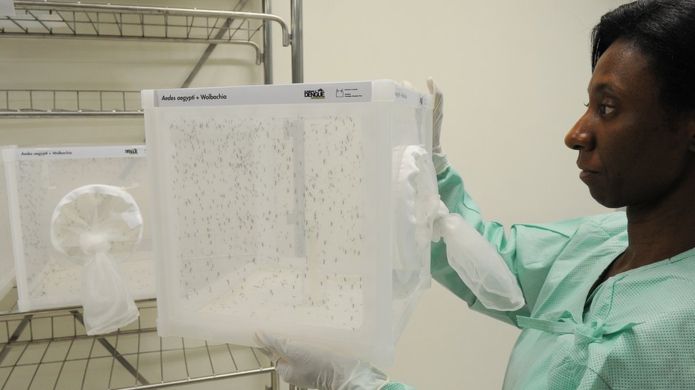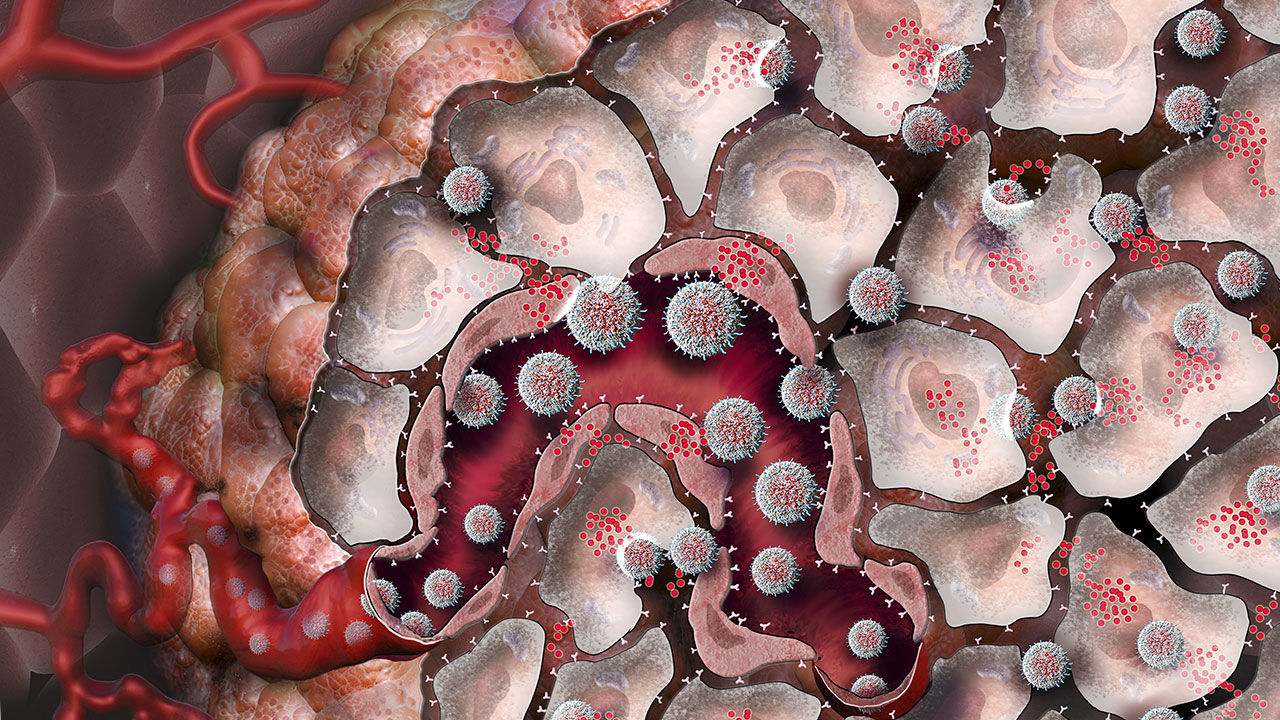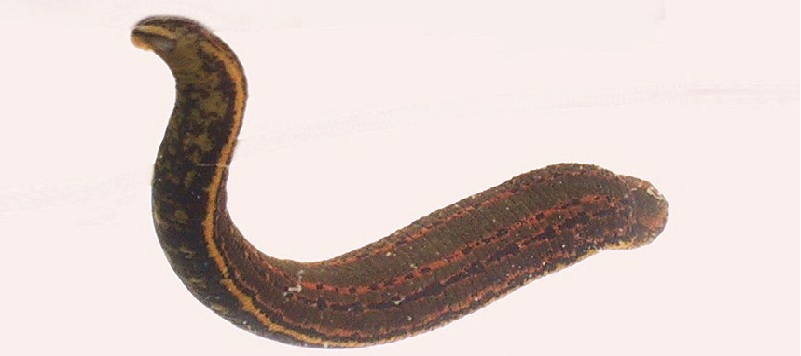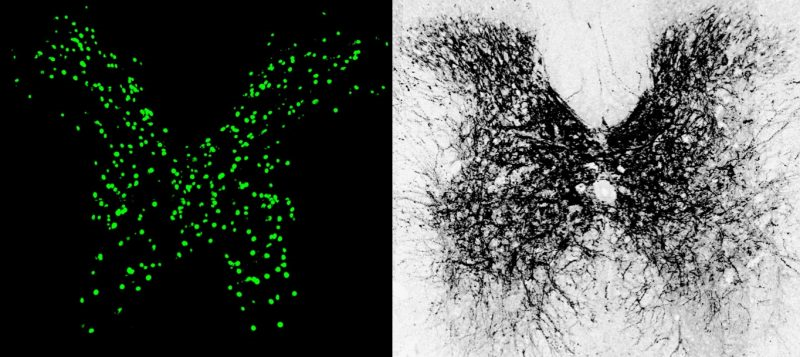Scientists Calculate the Speed of Death in Cells, and It's Surprisingly Slow
By Yasemin Saplakoglu, Staff Writer, August 13, 2018 04:47pm ET Credit: Shutterstock Cells in our bodies die all the time, and now we know just how fast. Scientists found that death travels in unremitting waves through a cell, moving at a rate of 30 micrometers (one-thousandth of an inch) every minute, they report in a...
Dengue fever outbreak stopped by special mosquitoes
PETER ILLICIEV/FIOCRUZ The specially bred mosquitoes carry the bacteria Wolbachia which reduces the transmission of viruses Australian researchers say for the first time an entire city has been protected from viral disease dengue. Captive-bred mosquitoes with a naturally occurring bacteria were released in the city of ...
Nanoparticles awaken immune cells to fight cancer
An artists conception of nanoparticles targeting tumor cells. NICOLLE R. FULLER/SCIENCE SOURCE By Robert F. Service , Jan. 5, 2017 , 5:00 PM Tiny nanoparticles, far smaller than the width of a human hair, might help the bodys own immune system fight tumors, a new study shows. In experiments with mice, the nanoparticle-...
What leech gut bacteria can tell us about drug resistance
These microbes were exposed to surprisingly tiny amounts of antibiotics By Leah Rosenbaum BLOODSUCKER Medicinal leeches like this contain bacteria in their guts that can be transferred to humans. In some cases, it only takes a small exposure to antibiotics for those bacteria to become drug resistant. KARL RAGNAR GJERTS...
Paralyzed mice regain movement in their legs with new treatment
The drug reactivates nerve pathways in partially severed spinal cords. Most people with spinal cord injuries are paralyzed below the injury site, even if the cord is only partially severed. Researchers dont know why the nerve pathways that are still intact also stop working. A new study provides a promising answer and ...
























